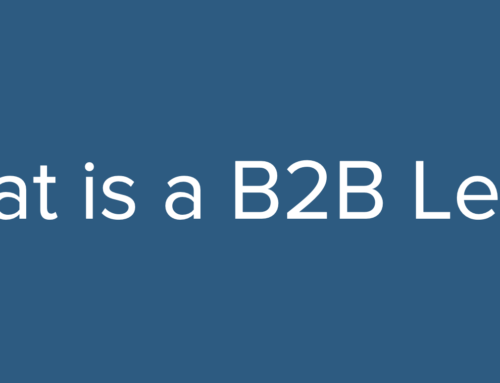The goal of any B2B lead generation program is to ultimately generate as many actionable leads as possible for the sales team. There are certainly plenty of topics around an approach, but the one area I want to focus on now is the absolute commitments that marketing and sales must make to each other to create an environment that will produce success.
At the heart of any B2B lead generation program must be an ongoing cycle of tactic execution, measuring results both in marketing and sales, sharing honest feedback to make adjustments in the plan and then repeating this cycle again and again to keep marketing and sales aligned. Below is a quick outline of the commitments required from both marketing and sales in this process. For a more complete discussion on this topic, download our white paper, Defining and Delivering B2B Leads that Sales People Want.
“61% of B2B marketers send all leads directly to sales; however, only 27% of those leads will be sales qualified” ~Marketing Sherpa
Marketing & Sales commit to a definition of a lead (decide together)
- Agree on the “definition” of leads for the particular market segment target (e.g., right companies, right persona profiles, what actions/responses represent engagement, what types of leads deserve what type of marketing or sales follow-up activity) – and commit to that definition.
Marketing commits on generating, delivering, and tracking leads
- Create a plan to capture the highest quality marketing qualified leads (MQLs) from the most appropriate sources for your target segment or segments (e.g., media, outbound nurture, telemarketing, programmatic, website).
- Commit to classifying leads in a way that provides sales with the intelligence needed (i.e., context of lead) and relevance/urgency (e.g., respond now to request for quote or follow-up, new relationship opportunity with right “fit,” opportunity to provide additional education/information).
- Commit to delivering leads to the exact person (determined by sales) that can respond to the request or build the relationship.
- Tracking, measuring and reporting the success of the lead generation portion of this campaign.
Sales commits to taking action, providing feedback, and reporting lead follow-up
- Commit to taking action on all leads delivered to sales based on the agreed-on classification and lead context (e.g., responding immediately to urgent requests, responding to education opportunities, using new contacts or early stage activity to reach out to build relationships).
- Commit to consistently updating lead content (e.g., fields) that provide feedback to marketing (e.g., sales acceptance, sales qualification, disqualification and reasons).
- Commit to accountability and transparency in reporting lead follow-up metrics.
Marketing & Sales commit to regular status updates
- Commit to regularly meet to discuss campaigns results and possible adjustments that may improve results.
So, remember, both sales and marketing want to find and convert great leads. These commitments help create a repeatable and informed process based on collaboration and accountability.
For additional resources, or to download our white paper, Defining and Delivering B2B Leads that Sales People Want.






